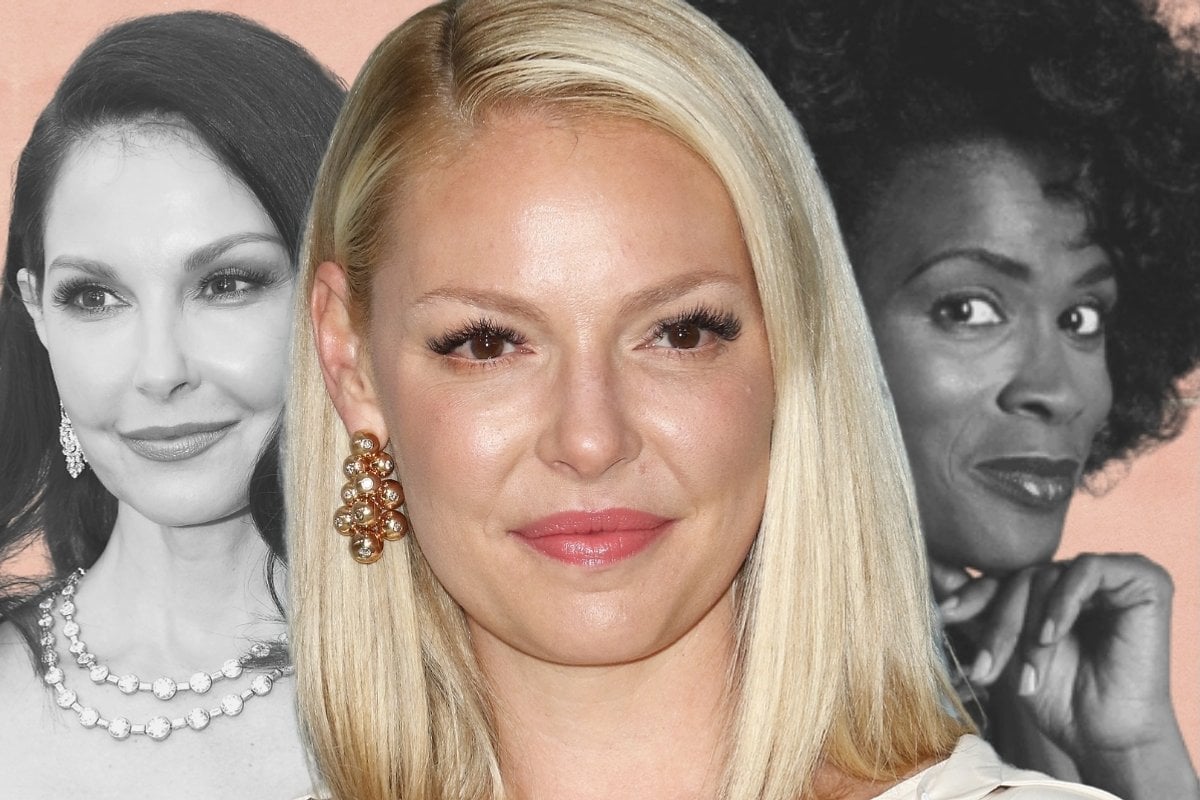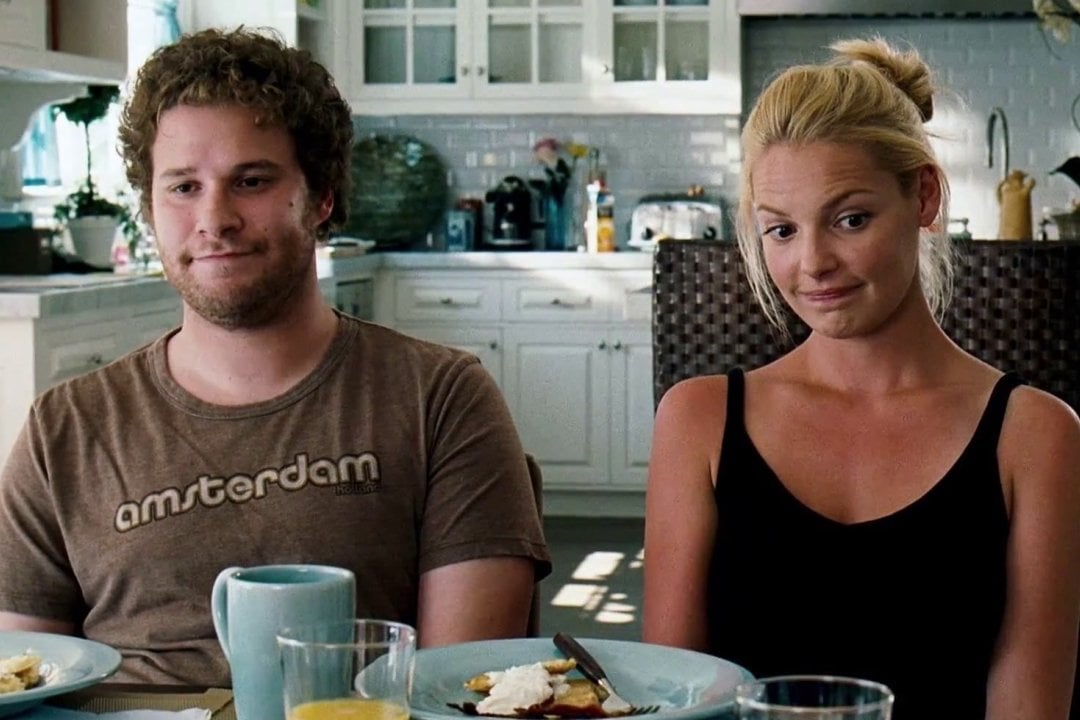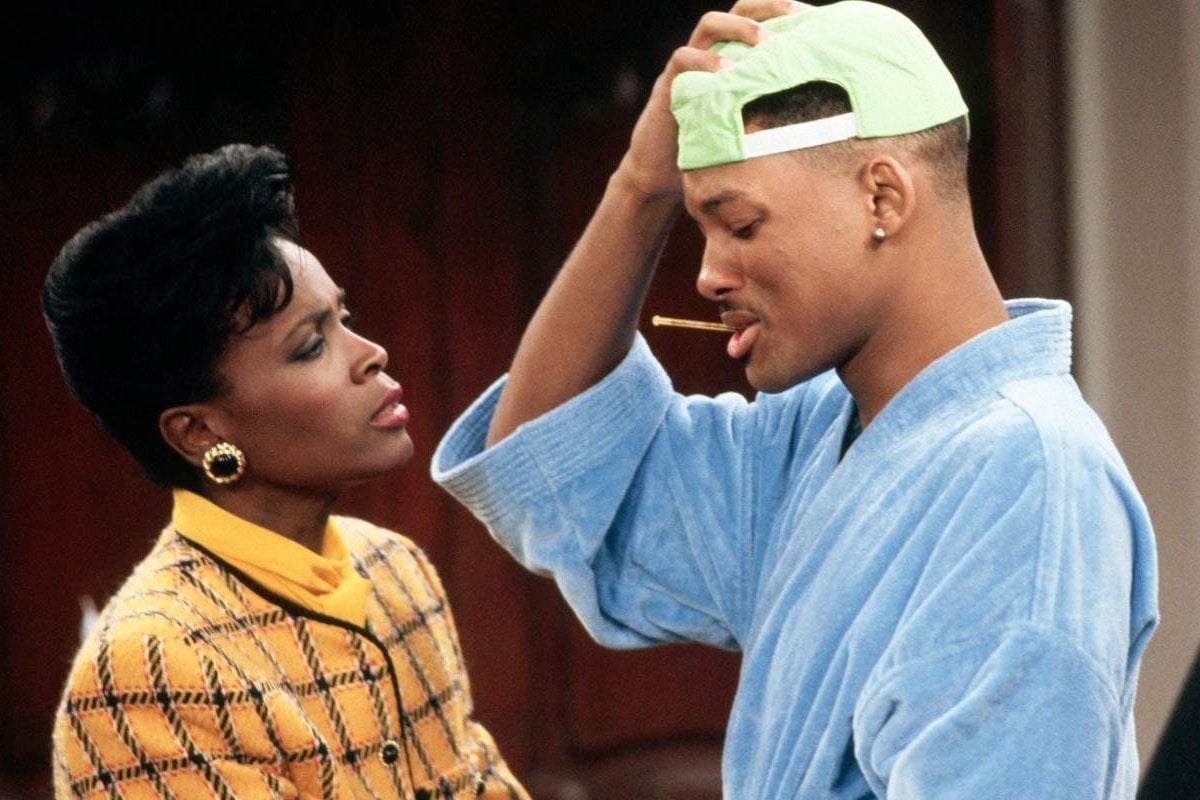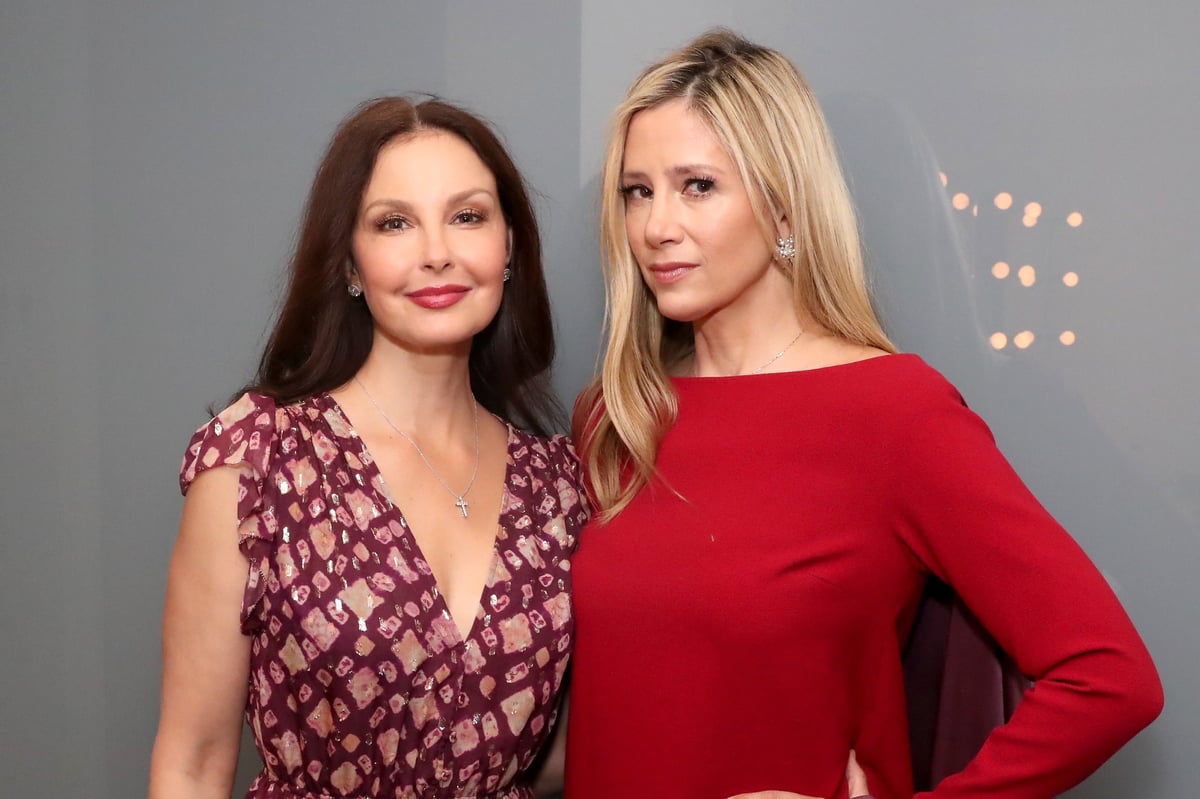
Search the phrase "difficult actors".
There are lists — lots of them — cataloguing the rumoured offences of Hollywood stars. One of the top results presents allegations that certain famous men yelled and swore at, fought with and even sexually assaulted their co-stars. The women rated among them? Well, you know, they were "diva-like", "demanding", and "honest".
The name 'Katherine Heigl' ranks high on many of these inane inventories.
Watch: Katherine Heigl on being labelled a 'rude', 'difficult' diva. Post continues below.
The actor, who earned fame and an Emmy with the hugely popular medical drama Grey's Anatomy, was publicly lumped with the "difficult" label back in the late naughts after she dared to publicly criticise the projects that made her famous.
Speaking to The Washington Post in January, the 42-year-old said that, at the time, the subsequent backlash from the public and the industry dragged her into a dark and deeply anxious place.
"I asked my mum and my husband to find me somewhere to go that could help me because I felt like I would rather be dead," she said. "I didn't realise how much anxiety I was living with until I got so bad that I had to really seek help. You can do a lot of inner soul work, but I'm a big fan of [antidepressant] Zoloft."





Top Comments